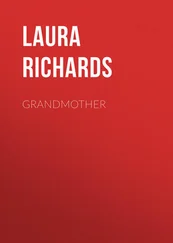Laura Richards - Abigail Adams and Her Times
Здесь есть возможность читать онлайн «Laura Richards - Abigail Adams and Her Times» — ознакомительный отрывок электронной книги совершенно бесплатно, а после прочтения отрывка купить полную версию. В некоторых случаях можно слушать аудио, скачать через торрент в формате fb2 и присутствует краткое содержание. Жанр: foreign_prose, на английском языке. Описание произведения, (предисловие) а так же отзывы посетителей доступны на портале библиотеки ЛибКат.
- Название:Abigail Adams and Her Times
- Автор:
- Жанр:
- Год:неизвестен
- ISBN:нет данных
- Рейтинг книги:4 / 5. Голосов: 1
-
Избранное:Добавить в избранное
- Отзывы:
-
Ваша оценка:
- 80
- 1
- 2
- 3
- 4
- 5
Abigail Adams and Her Times: краткое содержание, описание и аннотация
Предлагаем к чтению аннотацию, описание, краткое содержание или предисловие (зависит от того, что написал сам автор книги «Abigail Adams and Her Times»). Если вы не нашли необходимую информацию о книге — напишите в комментариях, мы постараемся отыскать её.
Abigail Adams and Her Times — читать онлайн ознакомительный отрывок
Ниже представлен текст книги, разбитый по страницам. Система сохранения места последней прочитанной страницы, позволяет с удобством читать онлайн бесплатно книгу «Abigail Adams and Her Times», без необходимости каждый раз заново искать на чём Вы остановились. Поставьте закладку, и сможете в любой момент перейти на страницу, на которой закончили чтение.
Интервал:
Закладка:
"My daily reflections for two years, at the sight of these soldiers before my door, were serious enough. Their very appearance in Boston was a strong proof to me, that the determination in Great Britain to subjugate us was too deep and inveterate ever to be altered by us; for every thing we could do was misrepresented, and nothing we could say was credited. On the other hand, I had read enough in history to be well aware of the errors to which the public opinions of the people were liable in times of great heat and danger, as well as of the extravagances of which the populace of cities were capable when artfully excited to passion, and even when justly provoked by oppression..
"The danger I was in appeared in full view before me; and I very deliberately, and, indeed, very solemnly, determined at all events to adhere to my principles in favor of my native country, which, indeed, was all the country I knew, or which had been known by my father, grandfather, or great grandfather; but, on the other hand, I never would deceive the people, nor conceal from them any essential truth, nor, especially, make myself subservient to any of their crimes, follies, or eccentricities. These rules, to the utmost of my capacity and power, I have invariably and religiously observed to this day."
The drummings and fifings were to have more serious results than the disturbing of good citizens' slumbers. The presence of the troops in Boston proved a constant and growing irritation to the citizens, already exasperated by repeated aggressions. The soldiers saw no reason why they should be polite to the people, the people saw every reason why they should be rude to the soldiers. There were constant wrangles and jangles, growing more and more frequent, more and more violent, till at length, on the night of March 5th, 1770, the seething pot boiled over. John Adams writes:
"The evening of the fifth of March I spent at Mr. Henderson Inches' house, at the south end of Boston, in company with a club with whom I had been associated for several years. About nine o'clock we were alarmed with the ringing of bells, and, supposing it to be the signal of fire, we snatched our hats and cloaks, broke up the club, and went out to assist in quenching the fire, or aiding our friends who might be in danger. In the street we were informed that the British soldiers had fired on the inhabitants, killed some and wounded others, near the town-house. A crowd of people was flowing down the street to the scene of action. When we arrived, we saw nothing but some field-pieces placed before the south door of the town-house, and some engineers and grenadiers drawn up to protect them… Having surveyed round the town house, and seeing all quiet, I walked down Boylston Alley into Brattle Square, where a company or two of regular soldiers were drawn up in front of Dr. Cooper's old church, with their muskets all shouldered, and their bayonets all fixed. I had no other way to proceed but along the whole front in a very narrow space which they had left for passengers. Pursuing my way, without taking the least notice of them, or they of me, any more than if they had been marble statues, I went directly home to Cole Lane."
What had happened was the Boston Massacre, which is vividly described by John Quincy Adams, at that time a child of two years.
It was nine o'clock of a moonlight night, he tells us, and there had been a light fall of snow on the icy streets. A single sentry was pacing slowly up and down before the door of the custom house in King Street. From his beat he could hear shouts and tumult in the neighboring streets; Boston did not go to bed at curfew these days. Parties of citizens had met parties of soldiers, and exchanged uncomplimentary remarks, with shouts and threats on either side. Probably the sentry thought little of this: it went on every night, more or less. Presently, however, round the corner came a barber's boy, and began to "slang" the sentry himself. This was another matter, and he responded in kind. The dispute ran high; other boys came running, and with them men, angry men who had had their fill of British insolence. The sentry, who for his part had had quite enough of "rebel impudence," called for support, and out came a corporal and six men (or twelve – the accounts vary) under the direction of Captain Preston, and ranged themselves in a semi-circle in front of his post. Instantly, as if by magic, the soldiers were surrounded by "forty or fifty of the lower order of town's people, who had been roving the streets armed with billets of wood… What begins with jeering and profanity not seldom ends in some shape or other of deepest tragedy. Forty or fifty of the coarsest people of a small trading town and eight hirelings of an ordinary British regiment can scarcely be imagined as types of any solid principle or exalted sentiment, and yet at the bottom lay the root of bitterness which soon afterwards yielded such abundant fruit. This was the first protest against the application of force to the settlement of a question of right."
We all know the outcome. Seven of the soldiers, "either under orders or without orders," fired: five men fell mortally wounded: six others were wounded less seriously. Each musket was loaded with two balls and every ball took effect. "So fatal a precision of aim, indicating not a little malignity, though it seems never to have attracted notice, is one of the most singular circumstances attending the affray. No wonder, then, that peaceable citizens of a town, until now inexperienced in events of the kind, should, in their horror of the spectacle, have called the act a massacre, and have demanded, in tones the most absolute, the instantaneous removal of the cause. The armed hand, which had done this deed, was that of England. It was not that of a friend or guardian. The drops of blood then shed in Boston were like the dragon's teeth of ancient fable – the seeds, from which sprung up the multitudes who would recognize no arbitration but the deadly one of the battle-field."
There can have been little sleep that night for either Mr. or Mrs. Adams. The latter was in delicate health. The roll of the drums, the shouts of "Town-born, turn out, turn out!" the tramp of soldiers, as company after company was hurried to the scene of action, must have been terrifying enough. Still the tumult grew, till at length Lieutenant-Governor Hutchinson, with great difficulty making himself heard from the balcony of the town house (now known as the Old State House) pledged his word to the citizens that justice should be done, and prevailed upon the commander of the troops to withdraw them to their barracks.
This quieted the tumult, but still a crowd of anxious citizens – not the rioters, but the sober patriots who realized the gravity of the crisis – besieged the closed doors behind which Governor and Commander and justices of the peace were in council. All night they waited, watchful, silent: at three in the morning, it was announced that Captain Preston had surrendered himself and was committed to prison; then, and not till then, Boston went to bed.
The rest of the story must be told by John Adams himself.
"The next morning, I think it was, sitting in my office, near the steps of the town-house stairs, Mr. Forrest came in, who was then called the Irish Infant. I had some acquaintance with him. With tears streaming from his eyes, he said, 'I am come with a very solemn message from a very unfortunate man, Captain Preston, in prison. He wishes for counsel, and can get none. I have waited on Mr. Quincy, who says he will engage, if you will give him your assistance; without it, he positively will not. Even Mr. Auchmuty declines, unless you will engage.' I had no hesitation in answering that counsel ought to be the very last thing that an accused person should want in a free country; that the bar ought, in my opinion, to be independent and impartial, at all times and in every circumstance, and that persons whose lives were at stake ought to have the counsel they preferred. But he must be sensible this would be as important a cause as was ever tried in any court or country of the world; and that every lawyer must hold himself responsible not only to his country, but to the highest and most infallible of all tribunals, for the part he should act. He must, therefore, expect from me no art or address, no sophistry or prevarication, in such a cause, nor any thing more than fact, evidence, and law would justify. 'Captain Preston,' he said, 'requested and desired no more; and that he had such an opinion from all he had heard from all parties of me, that he could cheerfully trust his life with me upon those principles.' 'And,' said Forrest, 'as God Almighty is my judge, I believe him an innocent man.' I replied, 'That must be ascertained by his trial, and if he thinks he cannot have a fair trial of that issue without my assistance, without hesitation, he shall have it.'
Читать дальшеИнтервал:
Закладка:
Похожие книги на «Abigail Adams and Her Times»
Представляем Вашему вниманию похожие книги на «Abigail Adams and Her Times» списком для выбора. Мы отобрали схожую по названию и смыслу литературу в надежде предоставить читателям больше вариантов отыскать новые, интересные, ещё непрочитанные произведения.
Обсуждение, отзывы о книге «Abigail Adams and Her Times» и просто собственные мнения читателей. Оставьте ваши комментарии, напишите, что Вы думаете о произведении, его смысле или главных героях. Укажите что конкретно понравилось, а что нет, и почему Вы так считаете.












